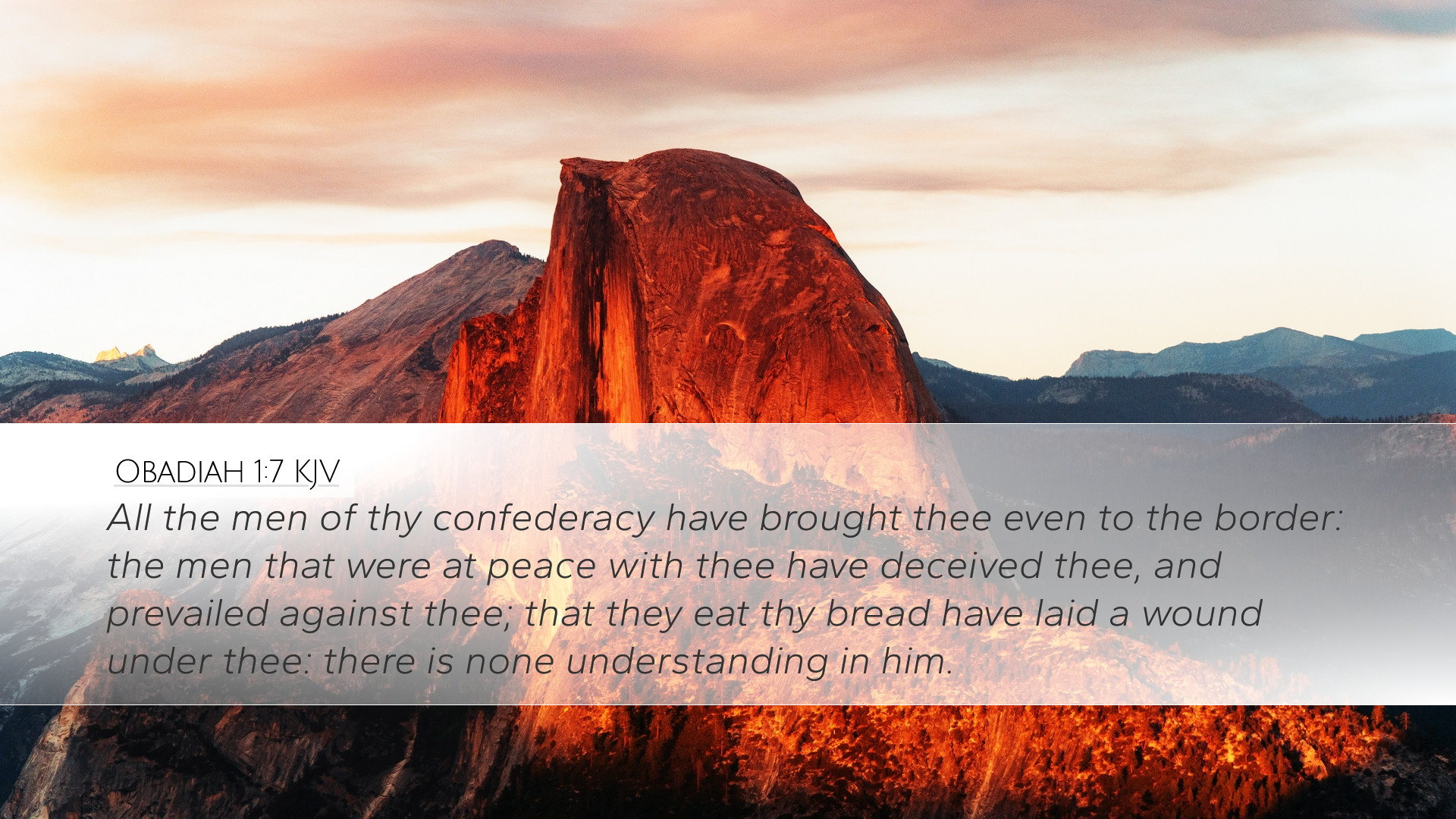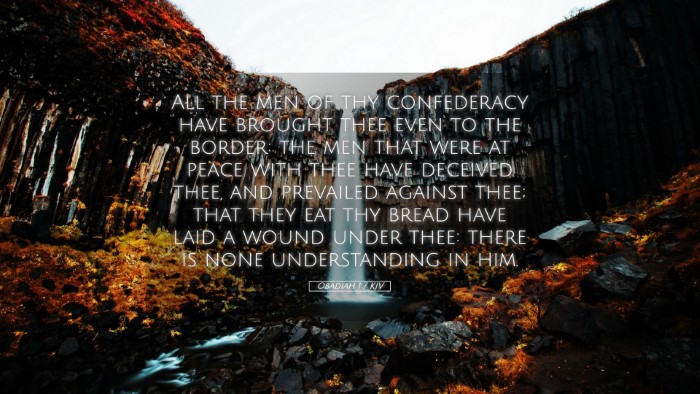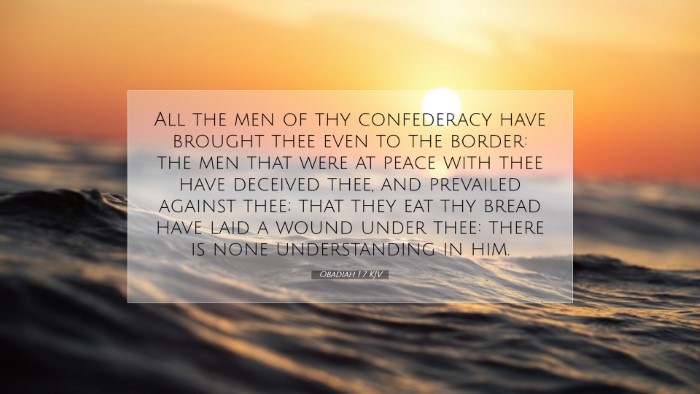Commentary on Obadiah 1:7
Obadiah is a unique book within the prophetic literature of the Old Testament. As the shortest book in the Old Testament, it contains profound messages that speak to the themes of betrayal, judgment, and restoration. The specific verse we are examining, Obadiah 1:7, reads:
"All the men of thy confederacy have brought thee even to the border: the men that were at peace with thee have deceived thee, and prevailed against thee; they that eat thy bread have laid a wound under thee: there is none understanding in him."
Contextual Background
The book of Obadiah is addressed to Edom, a nation descended from Esau, Jacob’s brother. The historical context revolves around the Edomites' betrayal of their Israelite brethren during a time of crisis. This verse encapsulates a critical moment of betrayal, highlighting the prophetic voice against Edom for their treachery.
Thematic Insights
The themes in Obadiah 1:7 draw on the complexities of human relationships, particularly in terms of alliances forged and broken. It addresses:
- Betrayal: The verse emphasizes the pain of deceit from those who were once allies.
- The Consequences of Alliances: It warns of the precarious nature of human confidences and relationships.
- Divine Judgment: It underlines God's justice against nations and individuals who cause harm to His people.
Exegesis and Commentary Insights
Renowned commentators provide valuable insights into this verse:
-
Matthew Henry: He highlights that the deception from allies indicates a deep moral failure within Edom. The phrase "men of thy confederacy" stresses the depth of betrayal—those who made promises of loyalty have now turned against them. This illustrates a broader principle regarding trust and the potential for human relationships to fail, serving as a reminder of the necessity of vigilance in choosing allies.
-
Albert Barnes: Barnes emphasizes the sense of irony, showing how the very ones who feasted at Edom's table are now the ones who plot their downfall. The imagery of "a wound under thee" suggests a hidden danger; those closest can cause the deepest hurt. This principle can be extrapolated to ecclesiastical relationships, charging leaders and congregants alike to be wary of false friendships that lead to spiritual and physical harm.
-
Adam Clarke: Clarke notes the absence of understanding in Edom, which suggests a lack of spiritual discernment. The inability to see betrayal coming from friends speaks to their spiritual blindedness. Clarke points out that this can serve as a warning for all believers to remain watchful and discerning in their relationships, remaining anchored in God’s wisdom.
Theological Reflections
The theological implications of Obadiah 1:7 resonate deeply, particularly concerning the sovereignty of God in judgment. The context of divine discipline involved in Israel's trials is significant. Edom's betrayal serves a purpose in God's larger plan for His people:
- Judgment on Nations: The prophetic pronouncements in Obadiah serve as a reminder that God holds nations accountable for their actions, especially against His chosen people.
- The Importance of Righteousness: Obadiah speaks to the importance of righteous conduct among nations and peoples; those who engage in treachery invite God's judgment.
- Ultimate Restoration: The broader message of the prophet indicates that while there may be betrayal and suffering, God's ultimate authority will restore and protect His faithful remnant.
Conclusion
In conclusion, Obadiah 1:7 serves as a stark reminder of the fragile nature of human alliances and the potential for betrayal from those thought to be trustworthy. The insights drawn from public domain commentaries highlight moral, spiritual, and theological lessons that are relevant today. For pastors, students, theologians, and Bible scholars, this verse not only informs our understanding of God’s judgment but also exhorts us to seek discernment and wisdom in our relationships, looking always to the Lord for guidance and protection.


